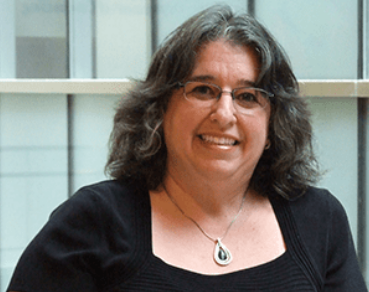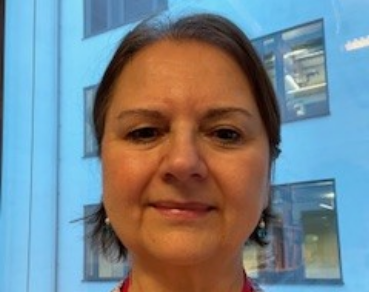2025 Conference Program
ERD 2026 will be held physically, in Cluj-Napoca, on May 21, 2026
"Education, Reflection, Development" Conference Program (May 15, 2025)
09:15 - 10:00 > Registration (Main Hall – Ground Floor)
10:00 - 12:15 > Conference opening & Plenary session (Mărgineanu amphitheater - First Floor)

Adriana Medina, Ph.D.
The University of North Carolina at Charlotte, USA

Manuela Lupsa, Ph.D.
Malmö University, Sweden

Nicoleta Laura Popa, Ph.D.
"Alexandru Ioan Cuza" University of Iași, Romania
Global Citizenship in Education, Adriana Medina, Ph.D., The University of North Carolina at Charlotte, USA
The (constantly) reflective educator - Intercultural education in theory and practice, Manuela Lupsa, Ph.D., Malmö University, Sweden
Digital Citizenship in Higher Education. European Perspectives, Nicoleta Laura Popa, Ph.D., "Alexandru Ioan Cuza" University of Iași, Romania
12:15 - 13:00 > Coffee Break
13:00 - 16:00 > Communications by sections (as below)
19:00 > Closing cocktail
Section 1: Didactic approaches in the contemporary school
DetailsSection 2: Trends and expertise in early childhood education and digital education
DetailsSection 3: Empowering Educators for Effective Teaching and Learning
DetailsSection 4:Challenges for 21st century education
DetailsNote that: The recommended time for each communication is 10 minutes for presentation + 5 minutes for discussions. It is recommended for the presentation to be accompanied by a digital support, such as power-point. Please upload your presentation in the cloud storage before the section begins.
Section 1: Didactic approaches in the contemporary school
Mărgineanu amphitheater (Room 12)
Moderators:
Cătălin Glava, Ph.D., Babeș-Bolyai University
Alexandra Oltean, Ph.D., Babeș-Bolyai University
- Silvia Bogdan, Natalia Maria Durus. Simulation-based learning in training interactions
- Zeki Arsal. The examination of Turkey's Curriculum Reform in terms of Key competencies of the European Commission
- Aida Cornelia Stoian. Streamlining teachers' competences in choosing evaluation methods
- Márk Szallós-Farkas. Comparing Job Satisfaction, Organisational Commitment, and Emotional Intelligence Among Teachers in Public and Seventh-day Adventist Schools in Romania
- Ramona Dună (Bratu), Bianca Ioana Garabet. The relationship between social network use, self-esteem and school procrastination in adolescents mediated by the FOMO phenomenon
- Denisa Pop, Mușata-Dacia Bocoș. The Influence of Learning Styles on the Academic Performance of Second Graders in Mathematics and Environmental Exploration
- Cristiana Creț. Education between village and city: the role of the community in supporting school education in rural and urban contexts
- Alina Florina Rațiu. Developing empathy in relation to disability through educational projects: the essential role of the multidisciplinary team in supporting inclusive education
- Denisa Ramona Chasciar, Vasile Chasciar, Alina Felicia Roman, Evelina Cornelia Balaș. The power of cultural stories in meaningful learning at early school age
- Violeta-Cristina Păltinean, Adriana-Denisa Manea, Nicolae-Cristian Stan. Outdoor education - perceptions regarding its efficiency and opportunity
- Alina-Elena Grecu. The Impact of Logotherapy in Education on Math Anxiety: A Case Study on a Meaning-Centered Approach to Learning
- Maria Claudia Cuc. Legislative, institutional and curricular strategies in the organization of mentoring in the educational field
- Kerekes Jenő. STEM Education Between Tradition and Innovation: A Comparison of Teaching Methods in Traditional and Waldorf Education
- Elena Maria Miclea (Tatar). Integration of activities based on the comic technique into curriculum design for literacy development
- Olga Chiș, Monica Coste. Early literacy strategies in the training of future teachers: Didactic explorations and pedagogical reflections
- Teodor Dumitru Vălcan. On Euler's Constants, Generalized (II) - other ways of determining -
Section 2: Trends and expertise in early childhood education and digital education
Room 10
Moderators:
Constantina Catalano, Ph.D., Babeș-Bolyai University
Marius Bănuț, Ph.D., Babeș-Bolyai University
- Cornelia-Victoria Anghel-Drugărin. Implementing AI technologies in higher education system. Effects on personalized learning pathways
- Shereen Shaw. Thinking about Tomorrow: Creative Use of Technologies in Higher Education
- Alina Turculet. Daniela Popa. Green and digital pedagogies. A mapping exercise on CPD Programmes in teacher education
- Enikő Szőke-Milinte. Human efficiency and artificial intelligence
- Maria-Mădălina Coza. How Can Nursery Staff, Especially Educators, Support and Foster the Autonomy of Toddlers?
- Horațiu Catalano, Anca Ani-Rus, Gabriela Mestic, Ana Rus, Simona Voin. Improving the literary skills of primary school students through digital stories
- Alexandru-Constantin Strungă, Claudiu Marian Bunăiașu. Students’ Curriculum Preferences on Using Artificial Intelligence Applications in Higher Education
- Raluca-Ștefania Balica. Counseling Techniques For Cognitive Development In Preschool And Early School-Age Children
- Maria-Cristina Florescu, Raluca Răcășan, Karla-Melinda Barth. Socio-educational characteristics and motivational factors of students in Pedagogy of Primary and Preschool Education – an exploratory profile
- Raluca Pop, Anamaria Marc. Integrating AI into Foreign Language Instruction: Insights from In-Service Teachers
- Pavelina Pîrciu, Lavinia Nițulescu. The contribution of outdoor activities to the cognitive development of preschoolers
- Doina Florica Țifrea, Alina Felicia Roman. Exploring the research trends in STEAM education for preschoolers: a bibliometric analysis
- Onița-Maria Toderic (Pavelea), Nicolae Cristian Stan. Implementing the RoboKids Program in Kindergarten: A Blended Learning Approach for Developing Preschoolers' Digital Skills
- Ana-Maria Crisan, Ion Albulescu. Digitalization of Behavior Monitoring in Preschool Education: Teachers’ Perceptions and Practices
- Ramona Stefana Petrovan. Evaluating and Monitoring the Development of Older Preschoolers for Successful School Adaptation
- Gianina Prodan, Dagmar Schmidt. Extracurricular activities: characteristics and specific practices in preschool education
- Ruxandra Cornelia Ileana Lăcătuș, Mușata-Dacia Bocoș. Exploring Preschool Teachers’ Perceptions and Interest in Introducing the Optional Discipline of Good Manners for the Socio-Emotional Development of Young Children
Section 3: Empowering Educators for Effective Teaching and Learning
Todoran amphitheater (Room 6)
Moderators:
Delia Muste, Ph.D., Babeș-Bolyai University
Denisa Ungurășan, Ph.D., Babeș-Bolyai University
- Claudia-Irina Aldea, Daniela Elena Dumitru. Investigative study focused on identifying and analyzing teachers' training needs in the metacognitive field
- Ana F. Moreno, Patrícia Batista, Pedro Rodrigues Ribeiro, Patrícia Oliveira-Silva. Neuroscience-Informed Pedagogy: Empirical Insights and Implications for Teaching Practice
- Remigijus Bubnys. Contextualizing Reflective Practice: Teachers' Personal and Professional Development in School Settings
- Ioana-Eva Cădariu, Alina-Cristina Constantin, Loredana-Ileana Vîșcu. Self-compassion and student well-being: Psychological mechanisms and counseling implications
- Henrietta Torkos. The impact of outdoor learning on social and cognitive development in special needs education: a systematic review
- Alexandru-Iosif Fodor. Theoretical framework of teacher professional development
- Emil Lazăr. The Role of Self-Regulation in Students’ Success in Asynchronous Learning
- Gabriela Avram (Tărîță). Directions in the Professional Development of Teachers for Enhancing Socio-Emotional Growth and Social Life in the School Environment
- Andreea Georgiana Cascu. Students' motivation and interest in learning mathematics
- Dumitrita Butnariu (Margineanu), Alina Felicia Roman. The development of emotion regulation competence in teachers through mindfulness-based interventions: a literature review
- Delia Muste, Alina Melania Mariș. Student-centered assessment: co-participation, vocational counseling, and educational self-regulation
- Emilia Bidică. The Impact of Separation Anxiety on School Integration and Academic Performance in Early School-Age Students
- Ramona Iulia Herman, Letiția Muntean-Trif. Exploring the perceptions and challenges of the parental role among students in the field of educational sciences
- Ramona Furtună, Paul Lungeanu. Teacher Burnout and Reflective practice: A Critical Examination
- Maria Claudia Cuc. Personal values foundation in generating professional values
- Emanuele Isidori, Irina Leonova, Angela Magnanini, Yulia Gushchina, Mario De Martino, Francesco Taddei. Enhancing Athletes’ Resilience through Counseling: A Phenomenological Approach to Balanced Lifestyle Education
- Dana Jucan, Denisa Ungurasan. Training students in developing and applying innovative teaching strategies
Section 4: Challenges for 21st century education school
Room 18
Moderators:
Anca Simion, Ph.D., Babeș-Bolyai University
Anca Ani-Rus, Ph.D., Babeș-Bolyai University
- Karla Barth, Raluca Răcășan, Marius Țepelea. Linking Personal Factors and Self-Reported Symptoms of ADHD, Dyslexia, and Emotional Distress to Academic Engagement in Students
- Anca Manuela Egerau. The role of transformational leadership in building resilient educational communities
- Christoph Knoblauch. Rooted Locally, Connected Globally: Preparing Future Teachers for Diverse Societies through Community Engagement
- Georgiana Alexandra Giupana (Paun). Integration of children with CES
- Doris Pop. Do psychologists tend to care about other? Yes, but what else can we understand about them?
- Diana Ioana Popescu, Daniela Ana Vahnovanu. Understanding University Dropout Among Generation Z: A Study Based on Student Withdrawals in Five Faculties
- Ionela-Florentina Hortopan. Beacons in the mist: How transformative educational leadership can rewrite the destiny of Romanian rural schools
- Raluca Sandru, Claudia Chiorean, Anisoara Pavelea. Do personality traits and career interests influence students’ financial well-being?
- Pedro Rodrigues Ribeiro, Bahar Tuncgenc, Ignacio Cifre, Patrícia Oliveira-Silva. Learning from the Social Circle: A Cross-Cultural Study of Environmental Attitudes and the Role of Social Influence in Sustainability Education
- Horațiu Catalano, Denisa-Mihaela Dulf, Roxana-Maria Petian. The Impact of the National Program for Reducing School Dropout on Eighth Grade Students’ Performance in Romanian Language and Literature
- Cristina Ispas, Ana-Maria Eugenia Ispas. Parental Education today. From tradition to contemporary challenges
- Dorina Chiş-Toia, Dan-Mihai Rohozneanu. Considerations on the well-being of students at the UBB University Center in Reșița
- Cristian Stan, Anca Simion. Exploring Emotional Regulation and Metaevaluation through Student Reflections on Feedback in Higher Education
- Olga Chiș, Oana–Elena Hopîrtean-Negoiţă. The strategy and methodology for student involvement in organizing the anniversary event: 25 years since the establishment of the UBB Extension in Târgu Mureș
- Emanuele Isidori, Angela Magnanini, Elsa M. Bruni, Maristella Trombetta, Natalia Poplavskaya, Iosif Sandor. Sporting Style and Educational Values: A Contribution to Fashion Pedagogy
- Maria Claudia Cuc. Identity crisis and personal development of learners